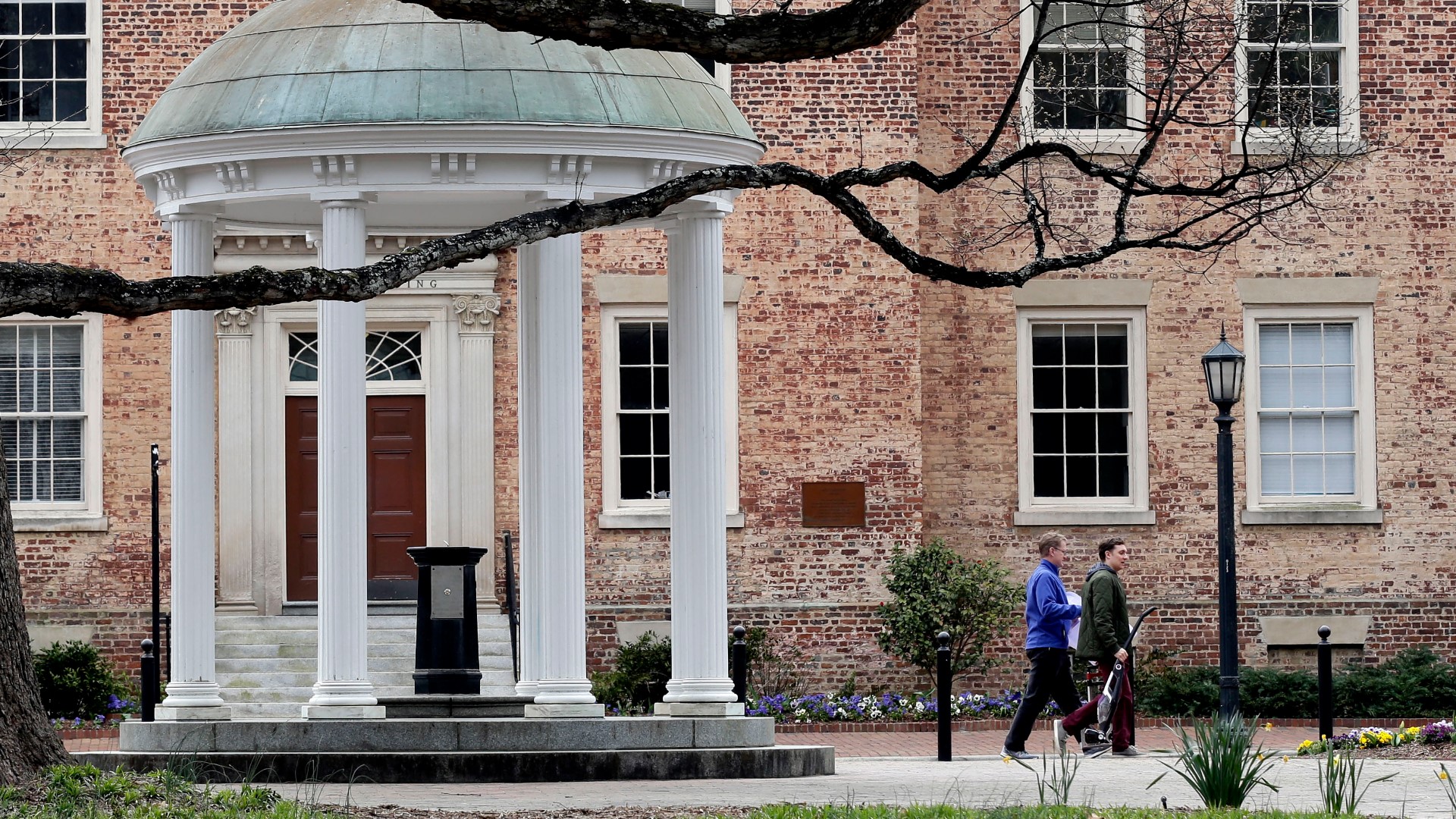CHAPEL HILL, N.C. — UNC-Chapel Hill has suspended three fraternities following a drug investigation.
Federal authorities arrested 21 people at UNC-Chapel Hill, Duke University and Appalachian State University in connection with a "large drug network" bust.
The network involved members of several university fraternal organizations, authorities said.
UNC-Chapel Hill Chancellor Kevin M. Guskiewicz said its suspended University recognition of Phi Gamma Delta, Kappa Sigma, and Beta Theta Pi due to the alleged activity in the investigation by the United States Drug Enforcement Administration (DEA).
“We are taking swift action today because the serious nature of the alleged criminal behaviors is contradictory to our code of conduct and endangers the health of our student body and community. We remain vigilant and are continuing to work with law enforcement to understand the extent of this activity on our campus and will take all appropriate measures to address it,” Guskiewicz said in the statement.
The Orange County Sheriff's Office and the Drug Enforcement Agency began the investigation into the drugs around Chapel Hill in November 2018.
The investigation revealed the suspects transported hundreds of kilograms of cocaine, LSD, molly, mushrooms, steroids, human growth hormone, Xanax, and other narcotics, according to a press release via the Orange County Sheriff's Office. Deputies estimate the drugs were worth more than $1.5 million over the course of the three-year investigation.
Early in the DEA's investigation, it became clear that illegal drug distribution occurred at or near some UNC fraternal organization properties, officials said. Court filings specify illegal drug activity involving the UNC chapters of Phi Gamma Delta, Kappa Sigma, and Beta Theta Pi between 2017 and the spring of 2020.
Francisco Javier Ochoa Jr., 27, was charged as the primary supplier and indicted in 2019. On Nov. 24, he was sentenced to 73 months in prison and ordered to pay $250,000.
Ochoa Jr. shipped cocaine from California through the U.S. Postal Service and transported marijuana by motor vehicle, investigators said.
Matthew G.T. Martin, United States Attorney for the Middle District of North Carolina, blames suspects like Ochoa Jr. for the nefarious activity.
"Dealers set up inside these houses, poisoning fellow members of their fraternity, fueling a culture. And that's why I say today is about saving lives. Because this reckless culture has endangered lives," Martin told a Raleigh television station.
In the bust, authorities seized nearly 150 pounds of marijuana and "442 grams of cocaine, 189 Xanax pills, steroids, human growth hormone, other narcotics, and approximately $27,775.00 in U.S. currency," according to the OCSD press release.
"College communities should be a safe haven for young adults to get a higher education. Not a place where illegal drugs are easily accessible," said DEA agent Robert J. Murphy. "The arrest of these drug traffickers makes these college campuses and their respective communities safer."
All 21 suspects indicted in the case are between the ages of 21 to 27 years old, except one who is 35, officials said.
Court documents also found the drugs made it to Appalachian State University and Duke University.

